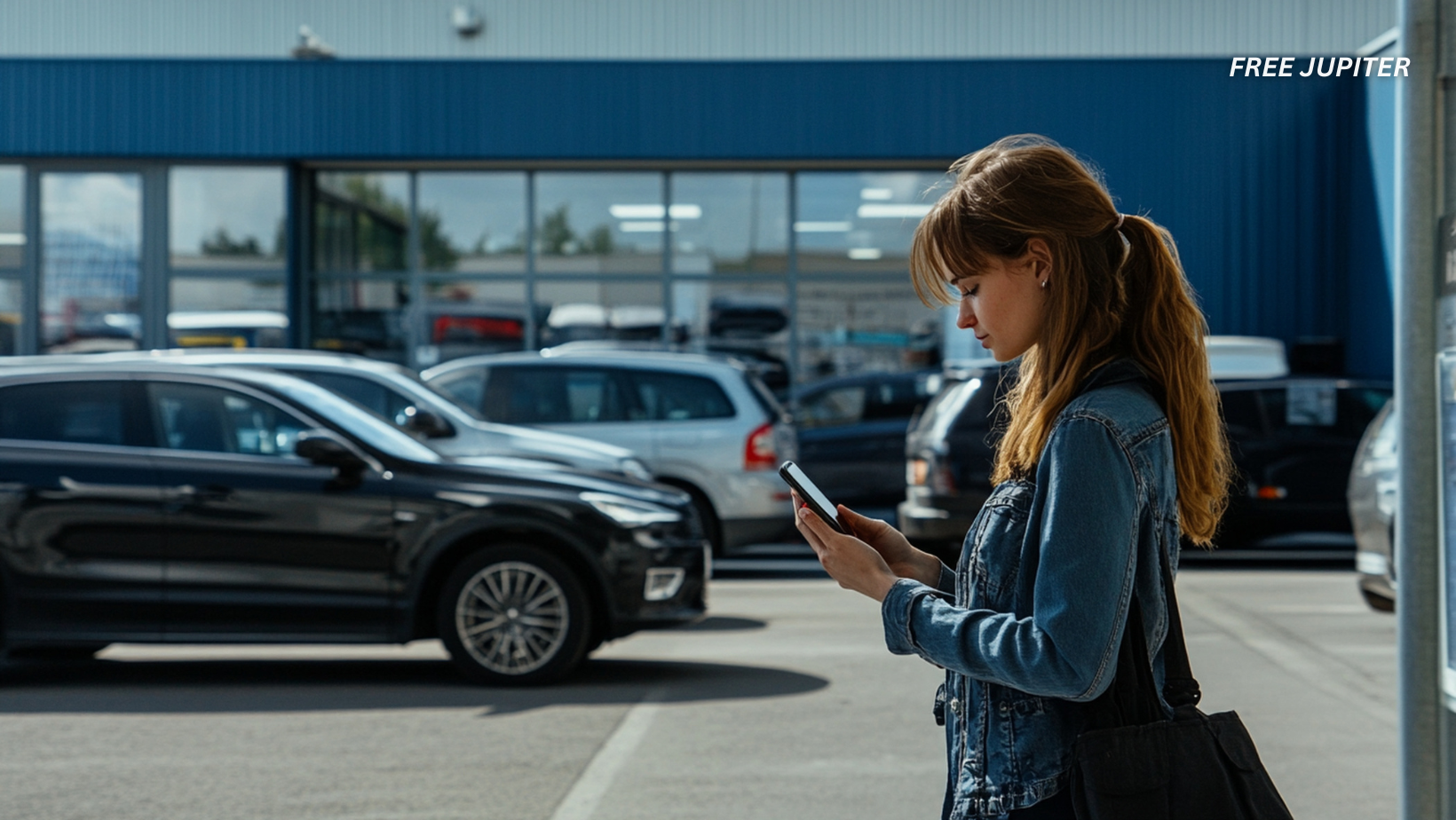If you’re like most people, buying a car involves a few no-brainer steps: shop around, find one that looks good, take it for a spin, then maybe—just maybe—make the big decision.
It sounds logical. You wouldn’t buy a mattress without lying on it first. You wouldn’t commit to a house without stepping inside. So skipping a test drive when shopping for a car? That just seems… reckless. Or at the very least, wildly out of step with how big purchases are usually made.
But according to one former dealership insider, there’s a good reason to skip the spin—at least when you’re sitting on dealership property.
The Emotional Setup: Test Drives Aren’t Just About the Car
Enter Ash, a former car salesperson who’s now gone viral on TikTok for dishing out some hard truths about the auto sales world. In a video that racked up serious attention, Ash drops a seemingly strange piece of advice: “Never ever test drive a car at a dealership.”
Wait—what?
According to Ash, what seems like a helpful courtesy is actually a very deliberate tactic, designed to work on your emotions, not just your logic.
She breaks it down like this: once you slide behind the wheel, touch the steering wheel, smell the interior, and hear the purr of the engine, something subtle happens in your brain. You begin to feel like the car is already yours—even if you haven’t signed a single form. This mental shift is called emotional ownership, and it’s a powerful sales tool.
“They want you to fall in love with the car,” she explains. “That way, when it’s time to talk numbers, your emotions are already on board—whether your wallet is or not.”
And let’s be honest—who hasn’t gotten a little swept away by the sleek paint job or the new car smell? That “first drive” adrenaline? Yeah, that’s exactly what dealerships are banking on.
The Silent Strategy: Exhaustion as a Sales Tool
But the psychological play doesn’t end once you’ve driven around the block.
Ash says there’s another behind-the-scenes strategy that many customers don’t even notice: deliberate delay tactics. You know the drill—you’re asked to “wait just a moment” while someone checks with a manager, prints paperwork, or makes mysterious phone calls in the back office. Meanwhile, you sit. And wait. And wait some more.
According to Ash, it’s all part of the plan.
“The dealership wants you mentally drained,” she says. “They know the longer you’re stuck there, the more likely you are to just sign the papers out of frustration and fatigue.”
It’s a kind of psychological wear-down. After hours of talking, waiting, and trying to stay alert through finance options and upsells, you might find yourself saying “yes” just to get it over with—especially if you’ve already bonded with the car during that earlier test drive.
It’s not exactly shady, but it is strategic.
The Business Model Behind the Manipulation
Here’s where it gets even more interesting. Dealerships aren’t just trying to sell you a car—they’re trying to sell lots of cars, as quickly as possible.
Ash explains that the longer a customer stays undecided, the more time the dealership is spending without making money. From their perspective, keeping things moving (even if it means wearing you down a little) is just part of an efficient sales model.
Once you’re emotionally hooked and mentally exhausted, you’re far more likely to speed through the negotiation process and accept whatever financing terms or add-ons they offer—whether it’s a “limited-time warranty” or an overpriced protection plan.
What Real People Are Saying
As with most viral TikTok advice, Ash’s perspective sparked a bit of a debate online.
Some viewers applauded the honesty:
“This is exactly what happened to me. I drove the car, loved it, and ended up spending more than I planned.”
Others weren’t buying it:
“I always test drive, and I have no problem walking away if the deal’s not right.”
A few pointed out the obvious counterpoint:
“Why would anyone not test drive a car? That’s how you find out if it’s got issues!”
Still, there were those who found the middle ground—agreeing with Ash’s caution while also defending the test drive as a necessary part of due diligence.
And honestly? They all have a point.
So Should You Ever Test Drive?
Let’s get something straight: Ash isn’t saying you should skip the test drive entirely. She’s just suggesting you be smart about where and when you do it.
If you’re worried about being emotionally manipulated, consider test driving similar models before going to the dealership where you intend to buy. That way, you get the feel for the car without the added pressure.
Here are a few smarter alternatives:
- Use rental services. Rent the same make and model for a weekend to get a real-world sense of it.
- Try car-sharing apps. Some platforms let you borrow cars from local owners, no strings attached.
- Visit multiple dealerships. Test drive at one, buy at another—so you’re not emotionally boxed in.
- Bring a neutral buddy. A friend or family member who can keep a clear head may spot red flags you miss while you’re swooning over leather seats and Bluetooth speakers.
Industry Insight: The Psychology Behind the Wheel
When you slide into the driver’s seat for a test drive, something surprisingly subtle—and powerful—starts to happen. It’s not just about how the car drives. It’s about how it feels, smells, and even how it sounds. Automotive industry experts have long understood that test drives are less about evaluating a vehicle and more about setting the stage for emotional bonding.
First Impressions Matter (More Than You Think)
From the moment your hand touches the door handle, your brain starts gathering cues. The new car smell—a potent blend of leather, plastic, and promise—sinks into your senses. The satisfying click of the ignition button, the polished steering wheel beneath your fingers, the quiet hum of the engine—these aren’t just features. They’re feelings.
And feelings are sticky.
Studies in consumer psychology show that first impressions often override logic, especially when those impressions are sensory-rich. You’re not thinking, “Does this car get good mileage?” You’re thinking, “This feels right.”
The Illusion of Prestige
Dealerships know that the test drive is an opportunity to make you feel important. Maybe the sales rep opens the door for you. Maybe you’re told this car just came in and isn’t even available to the public yet. Maybe you’re called a “good fit” for this specific model.
All of these moments subtly boost your self-image. You don’t just like the car—you start to feel like it represents who you are (or who you want to be). That sense of exclusivity and identity hits the reward centers of the brain, making the car seem even more desirable—sometimes regardless of its actual specs.
The Mind Takes Ownership Before the Wallet Does
Here’s where it gets really interesting: even if you haven’t made a purchase, your brain often starts acting like you already own the car after a test drive. Psychologists call this the endowment effect—when people place more value on things simply because they feel like it belongs to them.
By the time you return to the dealership parking lot, the car isn’t just a car anymore. It’s your car in your imagination. Letting go of it suddenly feels like a loss. And guess what people don’t like doing? Losing things—especially things they’ve grown emotionally attached to in the last 20 minutes.
This is exactly why many buyers agree to terms they didn’t intend to—higher monthly payments, unnecessary upgrades, or extended warranties they don’t fully understand. It’s not logic driving the decision anymore—it’s a connection, quietly built between your heart and the driver’s seat.
Final Thoughts: Stay in the Driver’s Seat (Figuratively)
Buying a car is one of the bigger financial decisions most people make—and it’s often loaded with emotional pressure, time constraints, and persuasive tactics that don’t always have your best interest at heart.
So the real message here isn’t never test drive, but rather: don’t let the test drive drive you.
Go into it with clear intentions. Know your budget. Don’t let yourself be rushed. And above all, remember that your brain and your heart may not always agree when the wheels start turning.
Because falling in love with a car too soon? That might just be the dealership’s secret weapon.










